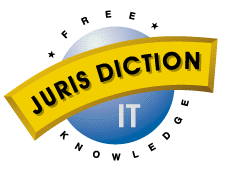 Dispute Resolution:
Dispute Resolution:
Litigation, Mediation and Arbitration
copyright 1997 Donald M. Cameron, Aird & Berlis
Contents
Introduction
Like a marriage contract, a software licence should always contemplate what will happen at the end of the relationship. The Dispute Resolution clause deals with the mechanics of how disputes are to be resolved.
Litigation
If nothing is said in the agreement as to how disputes are to be resolved, each party has the right to take the other to court to litigate the dispute. The courts are generally slow (with the time from commencement of a lawsuit until trial ranging from one to five years), expensive (in the order of tens to hundreds of thousands of dollars in legal costs and disbursements) and lack expertise in resolving technical issues. The latter fault has resulted in a lack of confidence amongst the technical professions towards the capability of Judges. The only encouraging statistic regarding litigation is that 95% of lawsuits are settled before trial.
Mediation
Mediation is often a contractual prerequisite to arbitration or litigation. It requires the parties to meet before an independent party who will try to assist the parties in resolving their dispute.
The mediator may make recommendations, but neither party is bound to accept them. Mediation is a conciliatory form of dispute resolution but when conducted by a qualified mediator, provides a good test of the strength of each party's case and can expedite resolution of the dispute.
A further advantage of arbitration is that the result of the proceedings and even the fact that the proceedings are taking place themselves can be kept confidential and private, away from the public view.
Arbitration
Arbitration is a form of dispute resolution where the parties go to an independent "Judge" and ask that person or persons to resolve the dispute between the parties. The parties usually agree to be bound by the decision and only to appeal if there was no fair hearing.
One advantage of arbitration is that parties can select their own "Judge" - the arbitrator and, to the extent possible, control the complexity of the procedure and hence, its time line. The arbitrator need not be a Judge or a lawyer and technical experts are hired often to arbitrate technical disputes. Sometimes lawyers familiar with the law in a particular area are hired to resolve a dispute in that matter. At other times, retired Judges are used when a generalist are required.
The procedure can be agreed upon by the parties. Either the standard procedures of an Arbitration Association can be chosen , the standard procedure of a "private court" can be used or the parties themselves can make up their own rules under which the arbitration will take place.
All disputes under this Agreement are to be resolved by arbitration under the rules of the American Arbitration Association [International Arbitration Association ...]
or
All disputes under this Agreement are to be settled by arbitration. Each party shall nominate one arbitrator. The nominated arbitrator shall appoint a third arbitrator to act as chairman of the arbitration panel.
The parties can agree that, during the course of the arbitration, each party will bear its own costs and share in disbursements (such as the arbitrator's fee) but can provide for the arbitrator to make an award of costs at the conclusion of the arbitration.
Each party shall bear its own costs of the arbitration. The parties shall share in common expenses, namely the cost of the arbitration. The arbitration panel is entitled to award costs to the successful party at the conclusion of the arbitration.
If the parties agree before the arbitration, decisions made by the arbitrator can be enforced by the Courts. Witnesses can be ordered to appear at the hearing . Changes to the Arbitration Act now provide for interlocutory relief allowing for immediate injunctive relief which was not previously available.
Arbitration works best where the parties want to have a continuing relationship. It is
then in the interest of both to resolve the dispute in the most expeditious and
co-operative manner. In circumstances where the parties are "at each others
throats", the arbitration will start looking more like litigation and the costs, time
and effort will increase.
Return to:
Cameron's IT Law: Home Page; Index
Cameron's Canadian Patent & Trade Secrets Law: Home Page; Index